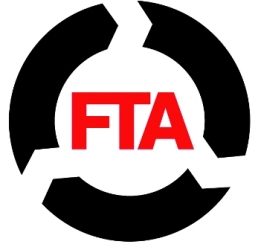
Yesterdays's decision by the Office of Rail Regulation (ORR) to increase track access charges will deal a heavy blow for modal shift and may halt further rail freight growth in its tracks says the Freight Transport Association (FTA).
The decision to target certain traffics such as coal and iron ore - and potentially in future bio-mass - on the basis that they are captive and have no option but to pay up could be viewed as a cynical decision according to FTA, who feels that the market reality is that road freight costs and prices are under continuous competitive downward pressure, and that increasing rail freight costs will widen the gap between road and rail resulting in a switch back to road and jeopardising modal shift policy objectives.
The FTA points out that following the McNulty report (into the cost efficiency of Britain's railways) which pointed to the need to cut high UK rail costs, the focus should be on cost reduction, increased efficiency and enhanced productivity. The Association believes that many will find it ironic that the Regulator is raising the cost of rail freight, when it should surely be exercising it powers to reduce costs through enhanced performance and productivity gains.
ORR's delayed announcement sees the "Variable Usage Charge" that freight train operators pay to use the network rise to a "capped" maximum of £1.68 per 1000 gross tonne miles. The actual rise will be finalised later next year. This will though put up operating costs to end customers.
The FTA believes that worse still, the charges for Electricity Supply Industry (ESI) Coal traffic to power stations going up by £4.04 per 1000 gross tonne mile - while less than originally threatened this is still bad, particularly for Scottish mined coal that has further to travel to English power generation stations.
These announcements have been delayed because of industry and customer representations to ORR on the effects of their proposals.
FTA's Rail Freight Policy Manager Chris MacRae commented: "this is bad news for rail freight, for British industry and for the environment. At a time when the Governments in Westminster and Holyrood are investing £200 and £30 millions respectively to enhance their rail networks for freight, it is ironic that ORR is pursuing a policy of increasing the costs for freight to use the rail network. This is in contrast to previous policy that has been to reduce these costs - a policy that helped stimulate rail freight growth."
MacRae continued: "Shippers need to be certain that rail freight, like road freight, is continually seeking cost efficiencies: this is key to achieving modal shift."
FTA submitted extra evidence to ORR on the specific adverse effects of the proposed increases on ESI coal traffic that will hit coal exports from Scotland to England particularly badly. Mr MacRae concluded: "We've got coal producing members who will now be driven to shift their traffic from rail to road, despite what ORR thinks: how does that fit with Governments' environmental agenda?"